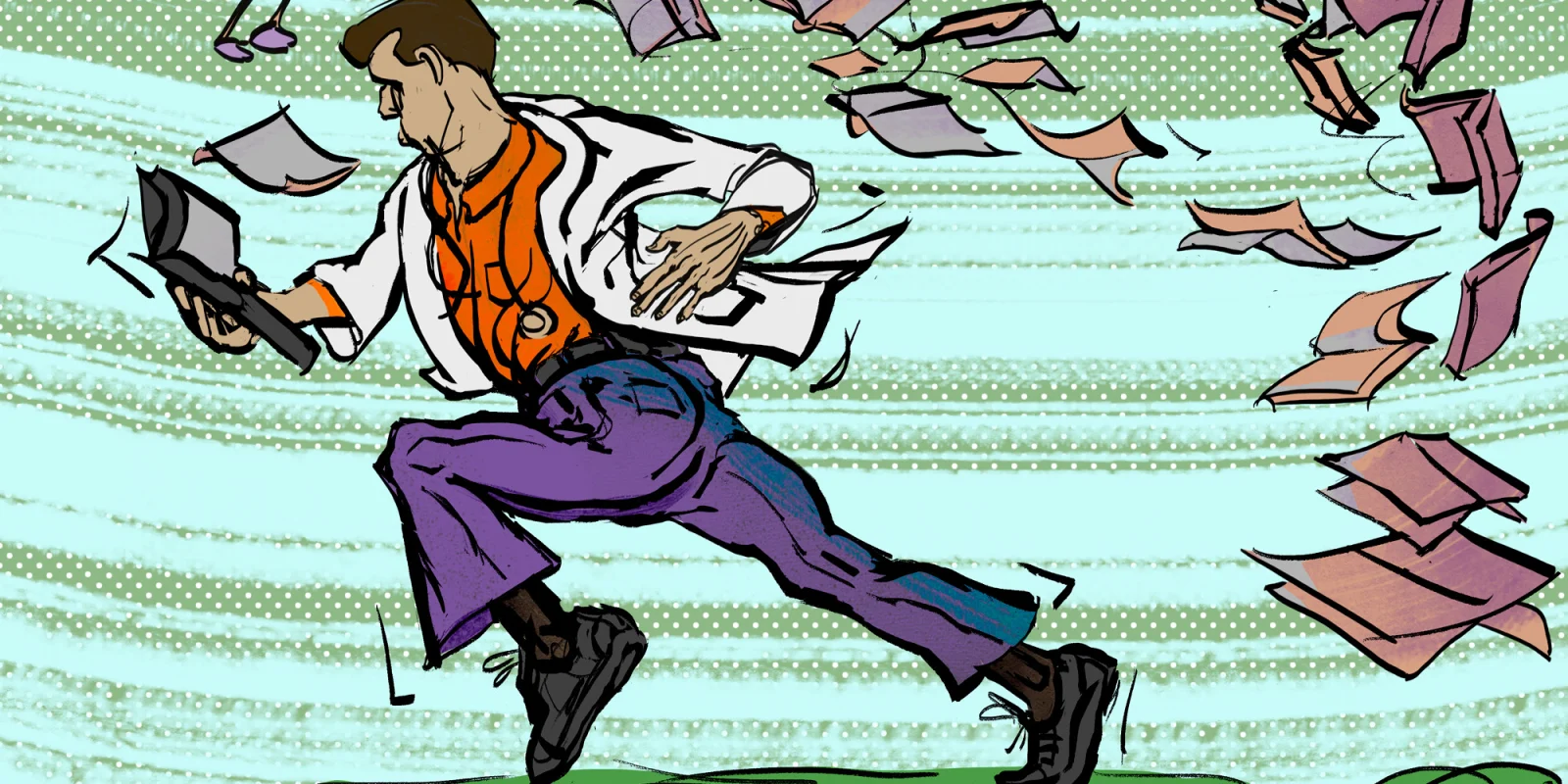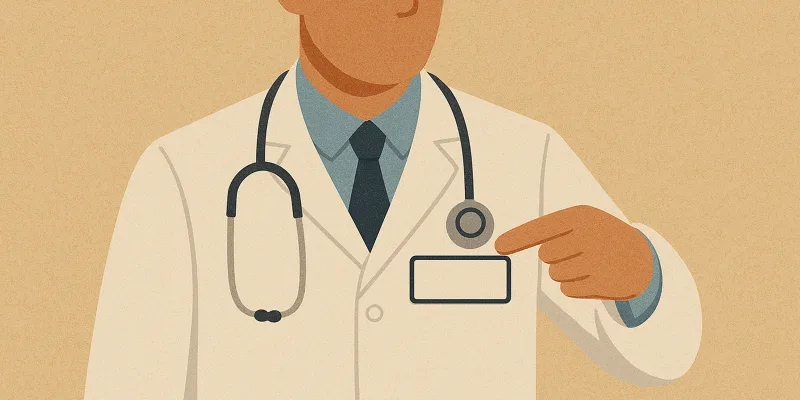
102 days since his last vacation.
29 days since he visited family.
16 days since he wore anything other than scrubs.
13 days since his last home-cooked meal.
10 days since his last day off, two more ahead.
It is 5:30 a.m. on a cold December morning. Adam, a General Surgery resident at a renowned university hospital, just got out of shower. He still remembers his Match Day, opening that envelope to find out not only where he matched but also where he will be spending the next five years of his life. The excitement, the passion, the enthusiasm has faded somewhere between that day and today as he is wrapping up his first year of residency. He puts his jacket on top of his blue scrubs. The cold air hits his face as he tries to run through his patient list in his mind. Take the drain out of this open cholecystectomy. Check the wound on this laparotomy. He gets on the empty subway train, takes out an expired 2.0 Vicryl from his pocket, and automatically ties it down on the side rail. He closes his eyes and ties one surgical knot after the other as fast as he can. Maybe one day he will come across the same subway train with an old knot he made.
As he is getting off the train, he checks his texts and emails. He missed his niece’s birthday yesterday because he was in the operating room. He needs to let his parents know he is okay. He hopes he can get off a little early today, so he can buy groceries. His fridge has nothing inside but a few bottles of water. He exits the elevator on the sixth floor, the Med/Surg floor that holds the sickest patients in the hospital. He greets his co-residents and prints out a list of patients he will be responsible for today. Just the North Wing today. Looks like I might get out of here early after all, he thinks to himself. He checks the charts in the computer quickly and starts to round on his 18 patients.
When he enters each room, he puts a smile on his face, raises his voice a little to sound enthusiastic instead of exhausted. He greets each patient, asks them how the night was, then asks about more specific things. “Did you have a bowel movement?” “Did you see any blood in the stool?” He examines them, then proceeds to explain the current plan for the day. (Though he will need to run the plan by his chief resident, who will then need to talk to the attending.) By 9:30, he needs to start writing notes, as quickly and accurately as he can, because he wants to watch that laparoscopic Whipple procedure on the second floor during his lunch break.
Adam barely finishes half of his notes before his pager starts to scream: Clarify This Order. Family needs to speak with you. Where is your script for this patient? Two trauma patients with free fluid in their abdomens. He leaves everything upstairs and rushes to the floor below. He orders fluids, blood transfusions, labs, images, and completes consents. He tries to stay as calm as he can, despite the gravity of the situation. Finally, his chief resident arrives and asks, “Why is that patient upstairs still not discharged? Why is that note not completed before noon for insurance purposes? Why are your physical exams still missing on those two traumas? I am taking them to the operating room now.” Adam nods and walks away. It is now 4:30 p.m. The pager has not stopped beeping. Adam wanted to use the restroom, but since he walked out of the emergency department, but there has not been a moment of rest. He wishes he could be two places at a time while simultaneously typing out his 18 notes.
Suddenly, it hits him: not only did he miss the laparoscopic Whipple, but the cafeteria has also closed its doors for lunch. He grabs his wallet from his locker and walks down the hall to the vending machine to eat anything that will keep him running until it is time to go home. As he inserts that $1 bill into the machine, the pager beeps again. A little girl with a ruptured appendix is in the emergency department. He does what he needs to do, and then the night chief resident takes over. It is already 8:30 p.m., though the day shift technically ended at 7:00. Adam walks out of the hospital at 10:00 p.m. because he promised the little girl, who was afraid, that he would be there for her when she woke up from anesthesia. As he crawls back into bed, it is almost 11:00 p.m.
It will be 5:30 a.m. again before he knows it.
103 days since his last vacation.
30 days since he visited family.
17 days since he wore anything other than scrubs.
14 days since his last home-cooked meal.
11 days since his last day off, one more ahead.
. . . But, one day since he last felt he made a difference in someone’s life.
Mina Wilson, MD, is a PGY2 Resident at LSU at Monroe. He has no conflicts of interest.
Illustration by Jennifer Bogartz






